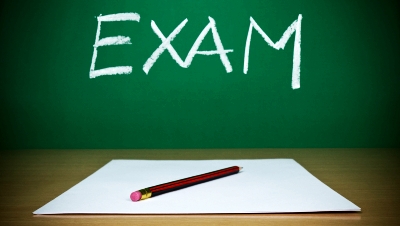
Routine of Study
I am Rajvi Sharma, a 42 year old mother of twin daughters aged 16 years. They are studying in 12th grade science stream. I have heard that so many children have problems in the 12th grade. I want to know what to do to prevent the problems that are in our hand. I know that many students get less marks even though they have scored very good marks in the 10th class. My daughters have scored 85% marks in the 10th class and I do not want to be disappointed later that about that marks if there is some help that I can give them. What are the factors that are responsible for the students missing out on performing to their fullest potential?

Well, Mrs. Sharma, you have hit the nail right on the head. There are a lot of students who have been promising a lot because of their past scores in 10th class but struggle even to pass in the 12th Boards. A host of factors contribute to this phenomenon. Firstly, there is a lot of difference between the level of studies of 10th and 12th class. Many students have taken up science in 12th class having scored 80-85 % marks in the 10th class, but later on they find it difficult to achieve the required marks. This is because many students really do not have the capability to bear the complexity of the 12th class studies.

Many of them have crammed their way through 10th class and therefore find it difficult to understand the 12th class studies. These are the students who must recognize that they could really do well under less pressure. Secondly, the parents find it difficult to accept that their child could be an average child. So, when the child starts performing less in school, then they feel that the child is not working hard enough and has become lazy. They pressurize the child, scare him, shun him, label him and the child in turn tries harder, but unsuccessfully, gets into a vicious cycle and loses all confidence. This depresses him further and he loses all interests in studies.
Henceforth it is very important for the parents to understand that they must from the outset of the 12th class, be vigilant but nevertheless be supportive to the child. Apart from these, the factor which is the most outstanding in influencing the results of children other than talent and effort is the following of a routine. While other factors combined may count for about 60 % of influence on result, it is a regular day cycle which accounts for 40 % of influence on the result. It is very important that the child follows a consistent day routine throughout the whole year. It is seen very often that the studies are very mercurial, up one day and down the next day. A child may study for 8 hours one day and then not at all the next day.
In a week he may be putting about 20-40 hours of self-study apart from tuitions and school, but they are in a very haphazard manner. The effectiveness of such a study is reduced by almost 50 %. As a result, the child although appears to be studying for long hours, the work done is not as much. Staying up for late nights, trying to make up for lost time by giving up meal times and relaxation times, studying under pressure and studying just to complete the priorities set by others takes away all the interest from studies. As a result the study becomes a drudgery and demotivates instead of motivating.

Also, because of the negativity associated with the pressure, the studied material is stored more or less in the short-term memory. As a result, when the student tries to recall the same material after some days, it becomes difficult. People forget that the best results that were achieved in the 10th class were because the child was in a good routine. The child was younger, more influencable and amenable to suggestions from school teachers, principals and parents. Once, in the 11th and 12th class, the influence of the school teachers and parents has lessened. Also, the criticism of the school’s attitude in the 12th class and a negative attitude towards school makes him ignore the routine of school too. It is often forgotten that school is also a great enforcer of discipline and routine and the loss of such a routine is impossible to replace with talent.



